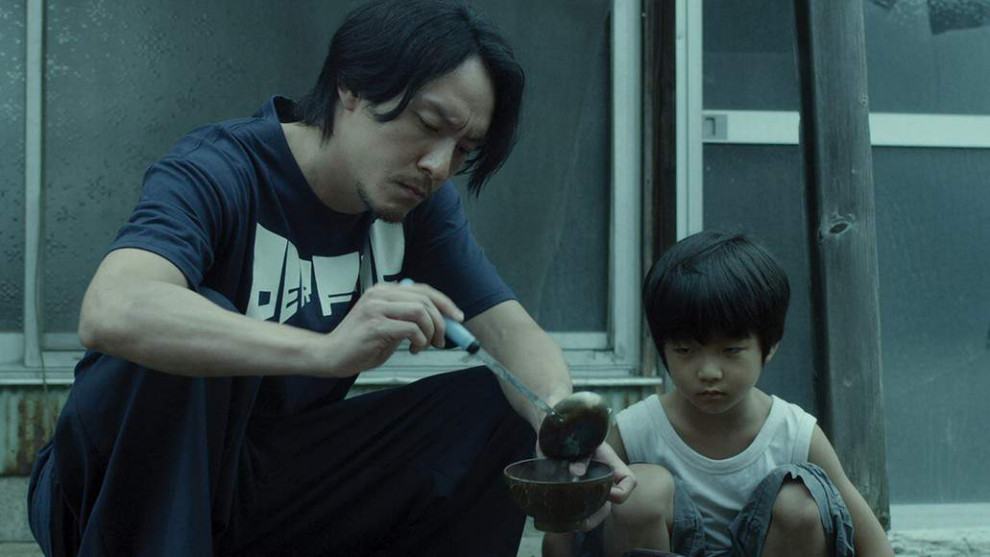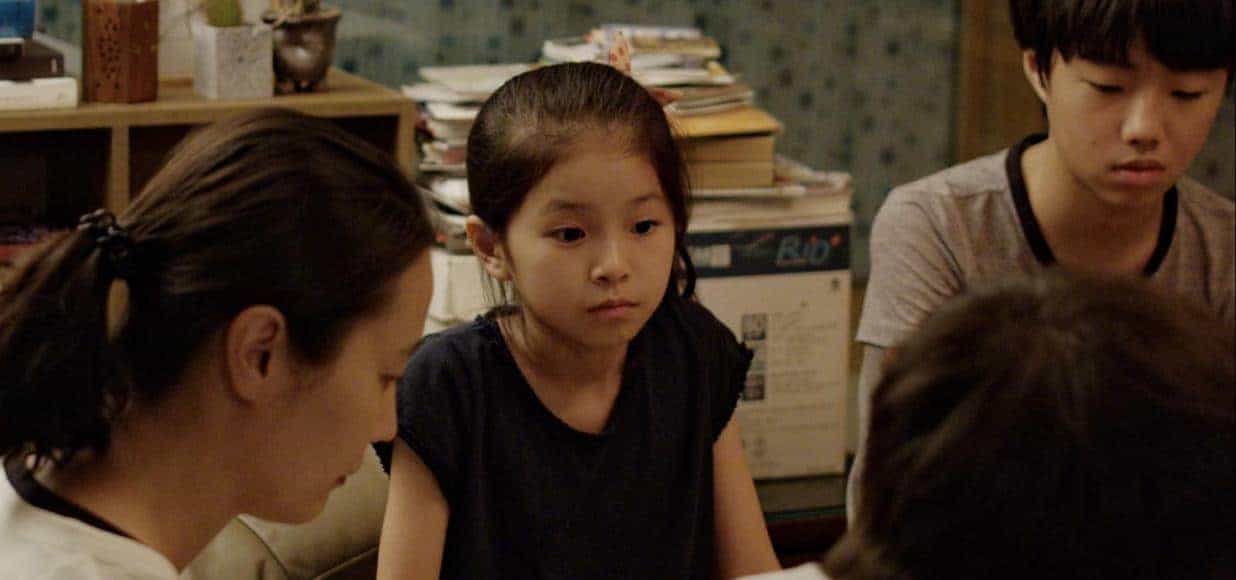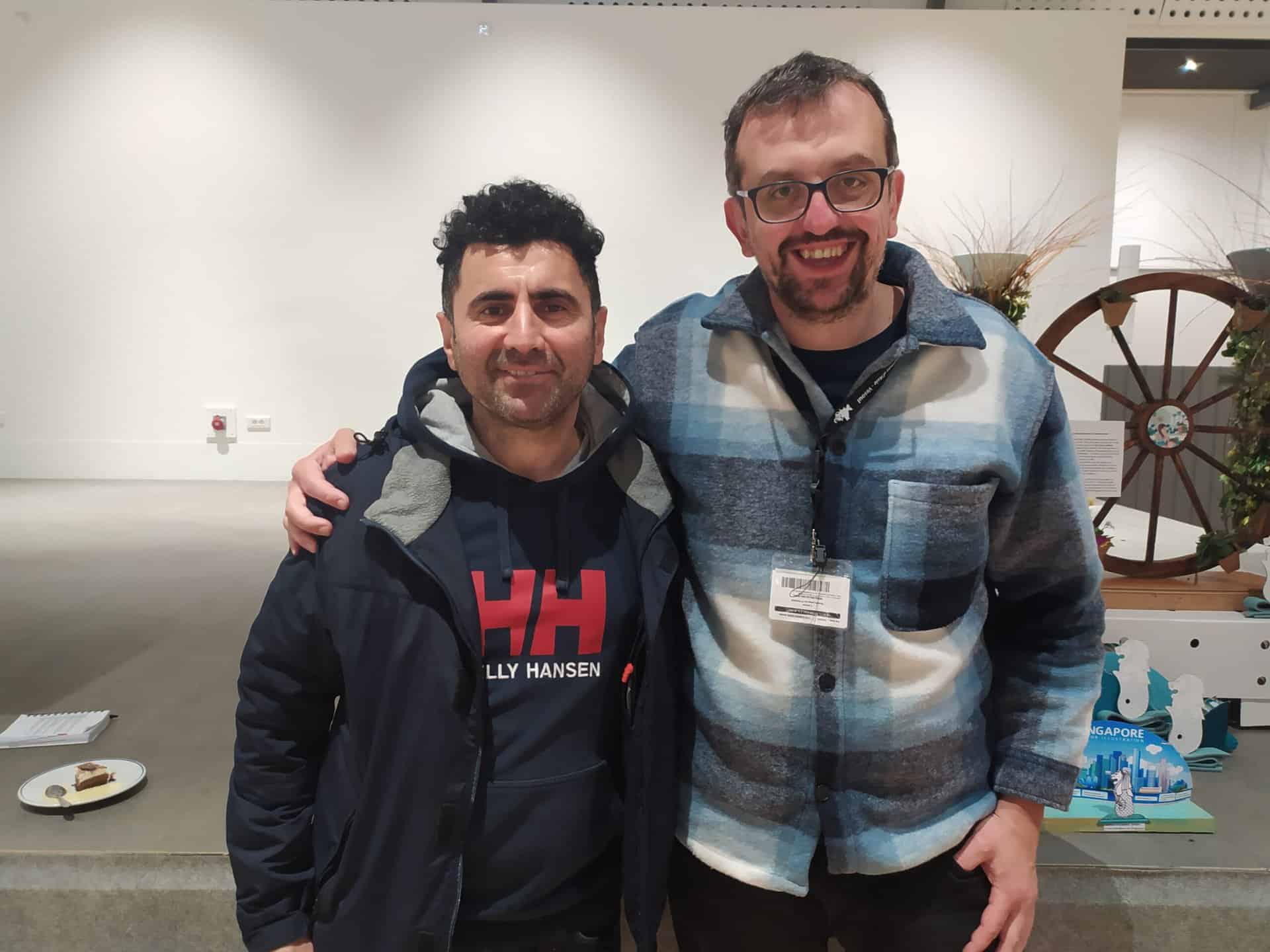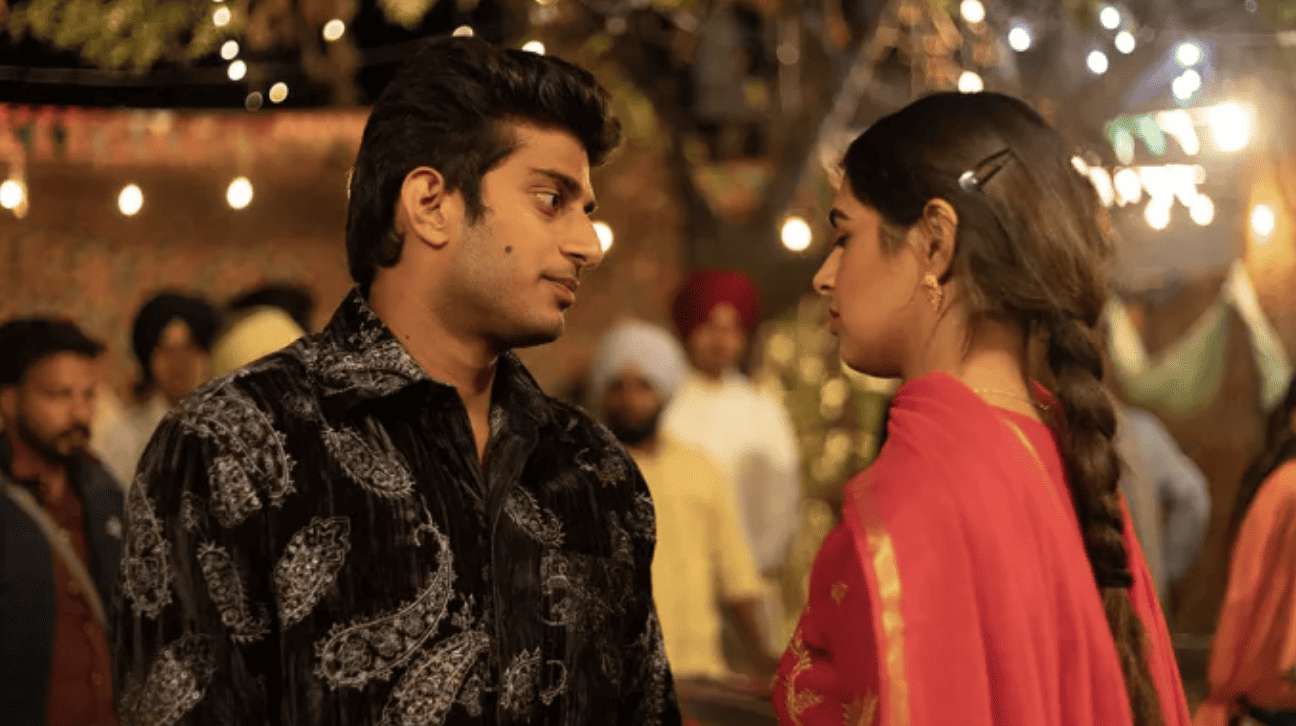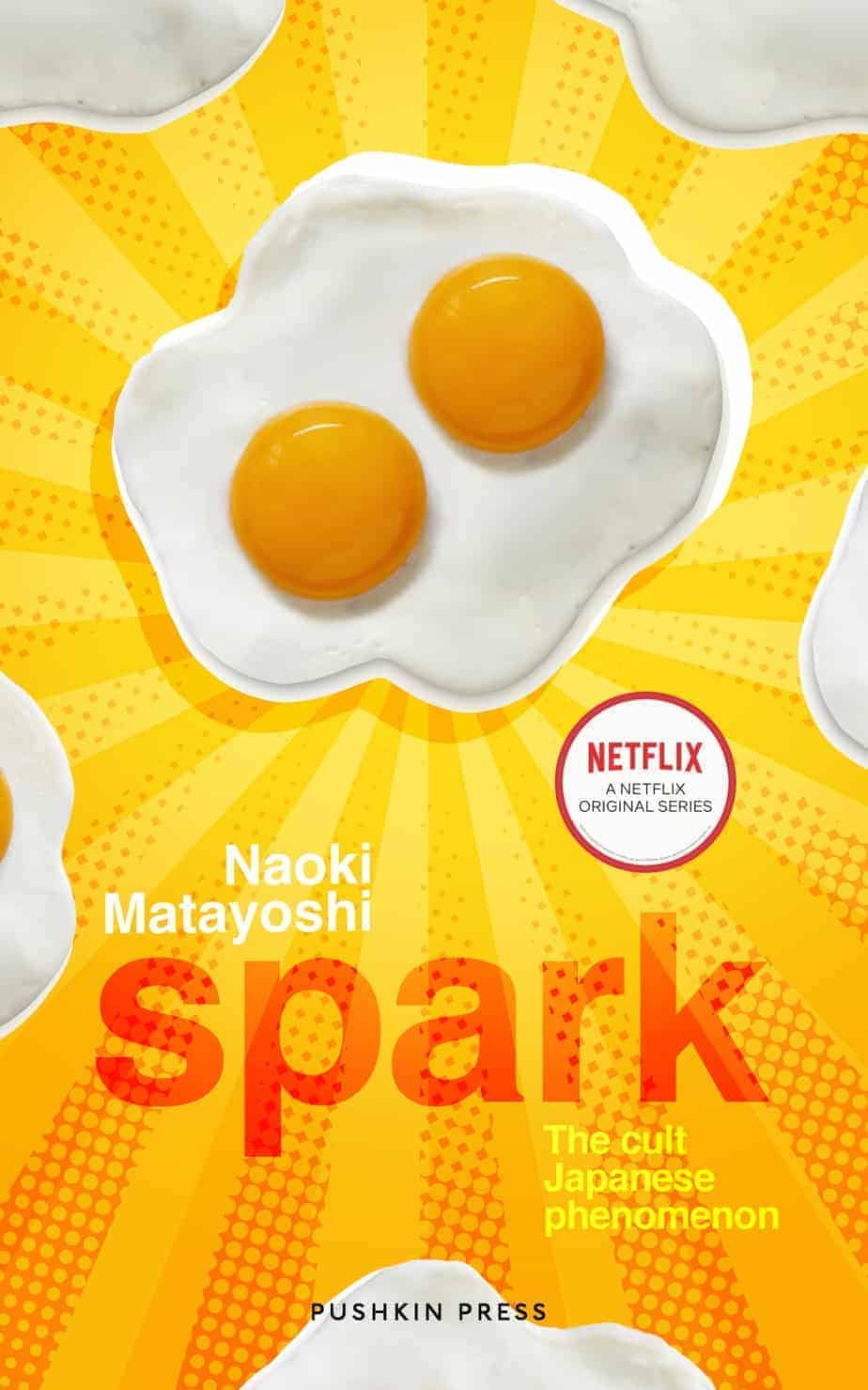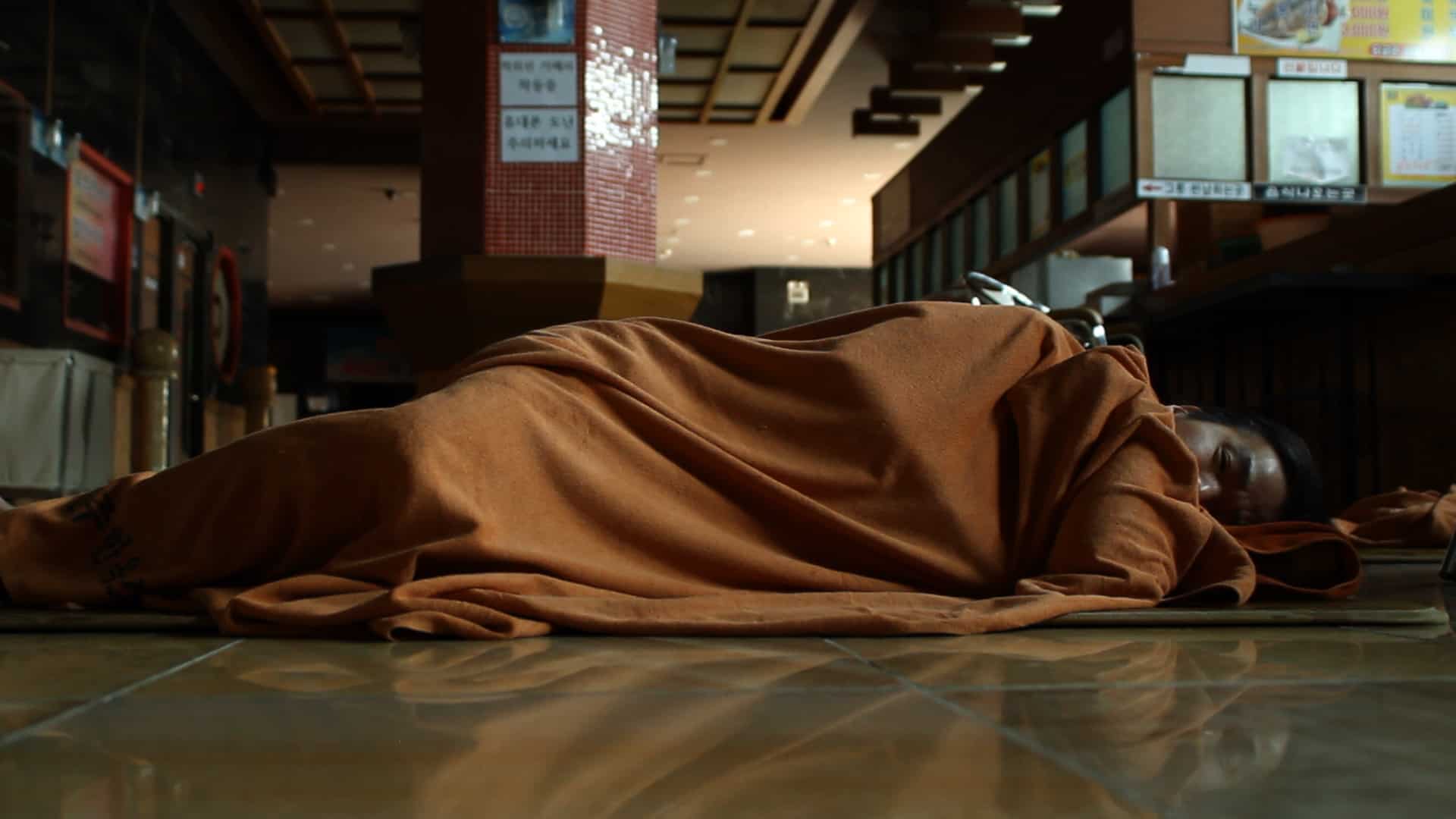“Why is all this happening?”
“Cause you stay cool and don't say anything.”
In an interview from 2007 when he was invited to the Brussels International Festival of Fantastic Film Japanese, director Hiroyuki Sanako, better known as SABU, talked about his approach to both filmmaking and writing. As reality is based on logic and rules agreed upon by society, changing the perspective often reveals the rules to be rather arbitrary. Coming up with the unusual situations, his characters, often imprisoned by reality and the conventions it is defined by, are therefore equal to show the fragility of everyday life and its rules.
“Mr Long” is screening at Five Flavours Asian Film Festival

In the past, the concept has taken a rather absurd turn for his characters, often played by actor Tsutsumi Shin'ichi. Whether it is the postman finding rather gruesome items in the mail or the salary man waking up in an anonymous hotel room, slowly remembering what has happened the past weekend. Most of the time, even the tiniest miscalculation or coincidence, such as crossing a red traffic light in “Drive” (2001) or being at the wrong player at the wrong time as in “Unlucky Monkey” (1998), is the beginning of a chain of more and more absurd event,s eventually making the house of cards or reality collapse.
As his films have become more and more popular in Europe, SABU has become a regular in many international film festivals, especially in Europe, where his film “Mr Long” premiered at the Berlin International Film Festival in 2017. During the press conference, the director mentioned how the idea for the film was connected to Taiwanese actor Chen Chang, since the two have been planning to work together for quite some time. Chen, who states he has been a fan of the director's work because of films like “Postman Blues“ (1997) and “Non-Stop” (1996), was just the right candidate for the role of the taciturn killer who finds himself in an unknown environment, discovering forgotten talents he had buried underneath.

Long (Chen Chang) is a professional hitman working for the Taiwanese mob. When a contract brings him to Tokyo, he fails to assassinate his target whose men quickly capture Long planning to get rid of the intruder as soon as possible.
Because of a lucky coincidence, Long is able to escape from his attackers to a derelict part of the city where he soon befriends a boy named Jun (Run-yin Bai). When the boy and the other few inhabitants discover the impressive cooking talents of the stranger, they support him in starting his own noodle kitchen. Even though Long remains skeptical and largely passive, he is also without any money, so eventually he plays along using his knife to cut up meat instead of people for a change.
However, his appearance has not gone unnoticed and his involvement with Jun's mother Lily (Yao Yi Ti) raises questions about his choices in life, especially how he has chosen to use his talents.
In the center of the movie, Chen's performance as the hitman turned cook may have many role models ranging from Jean Reno's Leon to the gangsters in the works of Jean-Pierre Melville. Indeed, his character arc will likely unfold, at times, in rather predictable ways of a man who has come to accept passivity as an integral part of his life, a man more comfortable with his hands deeply buried in the pockets of his trousers or folded. The opening scene shows him killing a number of thugs using only his knife, and not only sets the tone for the character but also the choreography could have easily been used in any movie of John Woo or Johnnie To.
However, using mere genre conventions does not apply to a film made by SABU even though the film's surface may invite such a viewing. What “Mr Long” may lack in sheer absurdity, or even downright craziness in comparison to his works from the late 1990s and early 2000s, the film makes up for a more human approach in terms of narration and characters. Long may be the “killing machine” one has come to expect – and the opening certainly confirms that suspicion – but he is also a character who has yet to learn not only to apply to social norms but to humanity as a whole. In an interview for the German-French TV channel Arte, SABU explains how Mr Long has to go through a development, possibly turning him into a “real human being”. Unlike rifles and booze as symbols of destruction and mayhem in “Monday” (2000) Long's knife is an ambivalent tool causing death or a means to enable human contact, as Chen points out in the same interview.

Visually, SABU's film switches between the rural and the urban throughout the film. The images by Kôichi Furuya present a more stylized version of the urban sphere, particularly in Tokyo and Kaohsiung, complete with inserts and the almost obligatory neon lights and the ant-like activity on the streets. The maze-like nature of this space welcomes those who are able to hide, to disappear like Long, who, almost logically, appears out of the shadows when he is first shown on screen with his knife slicing through the belly of his first victim. The more rural parts, along with the post-industrial ruins Long hides later on, represent a more open sphere, one which attracts others, such as Jun or the rather nosy neighbors living nearby. Expecting the newcomer to apply to rules, to improve his situation and to communicate, the endeavor to open a noodle kitchen fits with the view of cooking as a form of social participation. Within the narrative of the film, the two spaces may serve as the two extremes in which this character moves, two separate entities seemingly unable to find a common ground. Perhaps Long's silence is also a sign of the understandable inexperience to live, to survive in this new environment, an exercise whose result may be life-changing or threatening, depending on how one decides to use a knife.
“Mr Long” is an interesting development for SABU, an extension of the themes of his work, specifically the role of spirituality in today's life, coincidence and the dichotomy of activity and passivity. With its cast led by Chen Chang, its storytelling and its cinematography, the movie may be a more conventional movie for its director, but also one with a more humane take on its characters. Rules or conventions may be prison bars for some, but they are also meant to enable some of the most precious human qualities we can think of. Again, it is always easy to use the knife to destroy, but it requires patience and understanding to use it correctly.
Sources:
1) Press Conference for Mr Long on the 68th Berlin Film Festival (2017)
www.berlinale.de/de/archiv/jahresarchive/2017/02_programm_2017/02_Filmdatenblatt_2017_201713905.php#tab=video10,last accessed on: 04/23/2018
2) Horst, Sabine (2017) Kritik zu Mr Long
www.epd-film.de/filmkritiken/mr-long, last accessed on: 04/23/2018
3) Ofenloch, Simon (2017) An interview with SABU (2017)
cinema.arte.tv/de/artikel/mr-long-begegnung-mit-sabu, last accessed on: 04/23/2018
4) Gleiberman, Owen (2017) Berlin Film Review: ‘Mr Long'
variety.com/2017/film/markets-festivals/mr-long-review-berlinale-2017-1201986703/, last accessed on: 04/23/2018
5) De Vreese, Tom (2007) Sabu & Kaneko (interview)
www.filmsalon.be/intsabueng.html, last accessed on: 04/23/2018


